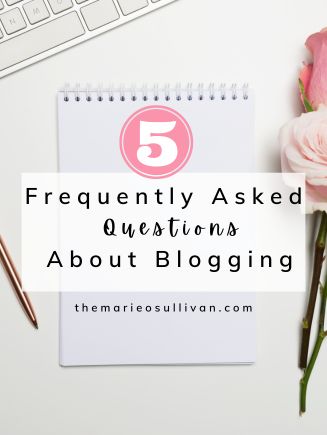Does this sound familiar? You’re eager to start blogging for business.
You’ve tried writing a blog or two, but given up because you weren’t sure about what to write about to hook your reader in.
- You’re scared to hit publish (someone might criticise you).
- What if no one wants to read what you’ve got to say?
- You feel like your writing isn’t good enough
Ditch the perfectionism.
Think of the people you’ll help when you hit “publish”.
I get it. It can be hard to put yourself out there.
The good news is it’s not that complicated.
Keep reading and I’ll share some simple tips to help you.
*End of pep talk.*
Let’s get cracking.
In this blog post, I’m going to share 5 simple tips to help you get started with blogging for business.
I love helping business owners to feel more confident about blogging. I’ve also seen what can happen when you get your content out there working for you.
Blogging for Business tips
1. Do keyword research
It’s a horrible feeling when you put out content and it gets ignored.
You’ve gone to the effort of writing a post that you think will be helpful. You’ve gotten over the fear of hitting publish so it can be crushing when no one seems to respond.
Save yourself the heartache – figure out what your audience actually wants to know.
Keyword research can help to boost your SEO (Search Engine Optimisation). That means it can help your blog posts to get found online.
- What do clients ask you all the time? Answer those questions.
- Search engines love FAQs (Frequently Asked Questions) because you are providing valuable information.
- Using this strategy over time can help your blog posts get found. It’s a long-term strategy, but worth it.
- Every time you publish a blog post, it’s another chance to get more visitors to your website.
- Search engines reward you over time for updating your website. Blogging is an easy way to consistently create fresh content.
Keyword research tip: Type your topic into Google. Scroll down to the “people also ask section” and weave some of those keywords into your writing.
Marie O’sullivan
2. Write clearly
It can be so tempting to use industry jargon and acronyms in a bid to show that you’re an expert in your field. Resist the urge, it can baffle the reader and they’ll click away if they don’t understand.
The aim is to share clear, helpful information that answers a question or solves a problem.
Keep paragraphs and sentences short. It’s less overwhelming for the reader (especially if they’re reading on their phone).
Avoid long blocks of text. Break it up with plenty of white space and images. Presentation is important. Think of a magazine layout.
- Use beautiful images
- Space out the text
- Pull out summary quotes- catch the attention of skimmers and scanners.
- Bullet points make it easy to get the gist of what you are saying
If you write how you speak, it’ll flow more naturally. Bonus: It’ll be waaaay less boring to read. If you’re worried your writing sounds full of psychobabble, Hemingwayapp is a fantastic tool to sharpen your writing. Try to keep your writing conversational as it’ll be much more engaging to read.
3. Repurpose your blog content
After going to all the effort of writing a blog, it would be an awful shame not to make the most of it.
Pull the best bits of your blog and share it on social media to make sure it keeps working for you.
Share a couple of tips from your blog on social media. Create intrigue – let the readers know that you reserve your very best tips for your blog.
>>> Read more: I hate blogging (how to create blog content faster)
4. Write evergreen content
Make sure that the majority of your content works all year round. This will lead to a flow of visitors to your website over time. It’s great to create seasonal content, but balance this with content that is helpful, no matter what time of year.
Of course, this doesn’t mean that you can’t create seasonal or timely content, but make sure there’s a good selection of content that will help your ideal client no matter what time of year it is. Ideally, your blog content should continue to bring you qualified leads and potential clients all year round.
MARIE O’SULLIVAN
Tip: Hide the date on your posts (go to your settings). Review your posts now and again and update any content that is no longer current.
5. Be consistent
Create trust by being consistent. You get to choose what that means for you – weekly, fortnightly, monthly, whatever is realistic for you. Don’t be afraid to share helpful content for free. And remember that updating posts you’ve already written still counts – if you get a spark of inspiration that you could add to an existing blog post that’s going to help people, that will count.
Please don’t worry that you’ll have to spend hours and hours hunched over your laptop to reap the benefits of blogging! Often your best ideas will come when you’re off doing other things. You don’t have to be a brilliant writer either, so just give it a go.
Interested in learning more about blogging? Would you love to get support and accountability to keep you on track? Click here to join my blogging course.







Thanks for this, very helpful.